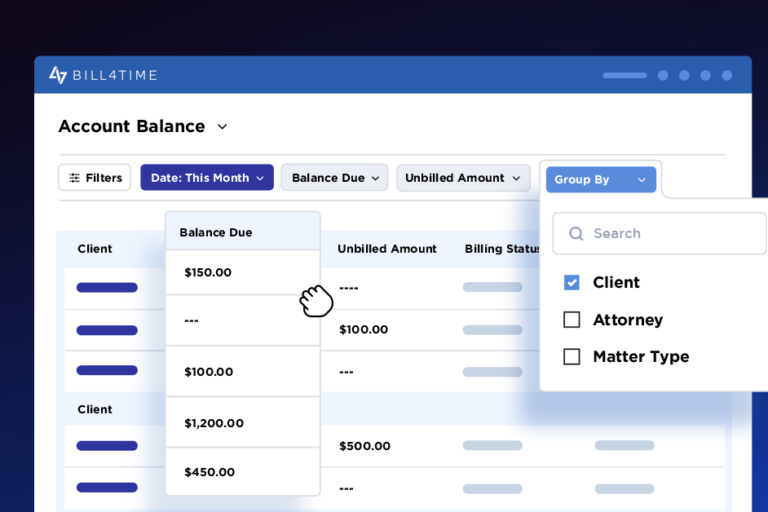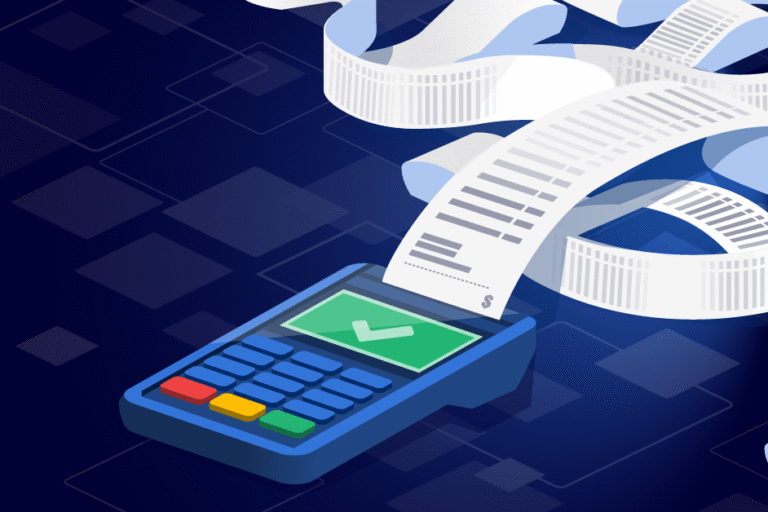
3 Reasons Clients Don’t Pay Invoices On Time (and how to fix them)
10/31/2018 By Bill4Time Staff

Why won’t they pay?
It’s frustrating to deal with delinquent clients. You’ve worked hard, produced results and delivered on your promises. You delivered on time, so why won’t your clients?
Why does it take them so long to pay?
Some clients refuse to pay their invoices at all. They feel they have the upper hand, that they’re in charge of the attorney/client relationship.
Most attorneys accept this lopsided arrangement
These attorneys enable tyranny. Instead of negotiating favorable terms for both sides, they allow their clients to call the shots.
Why do they do this?
For two specific reasons. These reasons affect professionals in a variety of industries and markets.
- I need their money
- I’m going to lose them
This unspoken yet lopsided agreement controls when and how clients pay.
How?
It prompts attorneys to make three fundamental assumptions about their clients.
- I don’t have any other options
- I’ll take what I can get
- I’ll lose them if I don’t do what they want
Identify the triggers behind these faulty assumptions and you identify the motivators you need to encourage clients to pay on time.
Let’s take a look.
Reason #1: Your firm is interchangeable
If you’ve seen one, you’ve seen them all.
This is the assumption most clients make about your firm. Sure there may be differences in experience or skill, but an attorney is an attorney, am I right?
This is why clients believe you need them.
If your firm is interchangeable, there’s nothing special or unique that compels your client’s attention. They know that so they’re not as concerned about losing you as you are about losing them.
Unpleasant, isn’t it?
If the relationship ends, they simply find another firm. If you lose them you’ll be hard-pressed to find another client who’s willing and able to pay.
Fix it by creating a strong value proposition.
Ideally, this value proposition is (a.) something your clients can only get from you. (b.) is something they value (c.) is credible, authoritative and/or trustworthy (d.) is understandable and clear.
Reason #2: You haven’t followed the rules
Have you followed your client’s billing guidelines?
Are all of your time entries compliant? Are the line items on your invoice specific, detailed and precise outlining the who, what and why of each task?
Unclear invoices create resistance.
If your invoices ignore implicit or explicit rules clients are less likely to pay on time. They’ll need to take some time to investigate your assumed malfeasance.
Put yourself in their shoes.
How would you respond to a large, unexpected invoice? What would you do if the invoice had a significant variance? If your law firm deviated from a previously established budget would you go along with it or would you ask questions?
This is the problem.
Fix it by communicating clearly with your client.
If there’s an unexpected change, reach out to your clients. Are you increasing the budget for a particular reason? Let your clients know. Add any necessary explanations to your invoice. Make sure any line items you’ve disclosed are explained clearly and concisely.
Share the facts.
If it’s bad news, explain why it won’t happen again. If it’s good news, show clients how you’ll capitalize on this situation.
Reason #3: The results aren’t there
Clients expect results.
When they don’t get these results they often hesitate to pay. As an attorney, you’re not solely responsible for the outcome of your client’s matter. Maybe they get the results they want, maybe they don’t. Your clients are still responsible for their invoice regardless of that outcome.
You know it, I know it.
Here’s the thing about that, your clients don’t care. Many clients seem to be okay with non/slow payment. Skeptical? See for yourself.
- “What should a client do to her lawyer when they lose the case?”
- “When hiring a personal injury lawyer, should they get paid only if they win the case?”
There are multiple examples of clients refusing to pay that are both legitimate and illegitimate. This issue extends to a variety of practice areas.
Is it fair? No.
Clients are still obligated to pay their bills on time. Will they? That’s another story.
Fix it by anticipating nonpayment.
Use alternative fee arrangements to mitigate slow/nonpayment. Use retainers, fixed fee, holdbacks, portfolio fixed fees and subscriptions to minimize slow/nonpayment. If you’re using retainers or fixed fee arrangements, request a larger upfront fee.
Next, resolve disputes in advance.
Negotiate with clients, establish upfront commitments and expectations ahead of time. Let them know that, regardless of the outcome, you’ll need to be paid for your work.
Finally, screen your clients.
Your clients aren’t created equal. Identify the key differences between avoiders, delinquents and deadbeats. Use these metrics to screen out dysfunctional or dishonest clients.
Many attorneys accept tyranny
Why does it take clients so long to pay your invoice?
Many attorneys allow clients to dictate the terms of their relationship. They allow their clients to call the shots. This toxic decision-making stems from fear.
- Fear of losing the business
- Fear of losing the client
These controls dictate when your clients will pay. The more confident you are, the more leverage and value you have, the more likely your clients will pay on time.
Resist your client’s faulty assumptions.
Create a firm that’s incompatible, one with a strong value proposition. With the right approach and clear, consistent value you’ll find your clients are eager and willing to pay your invoices.




